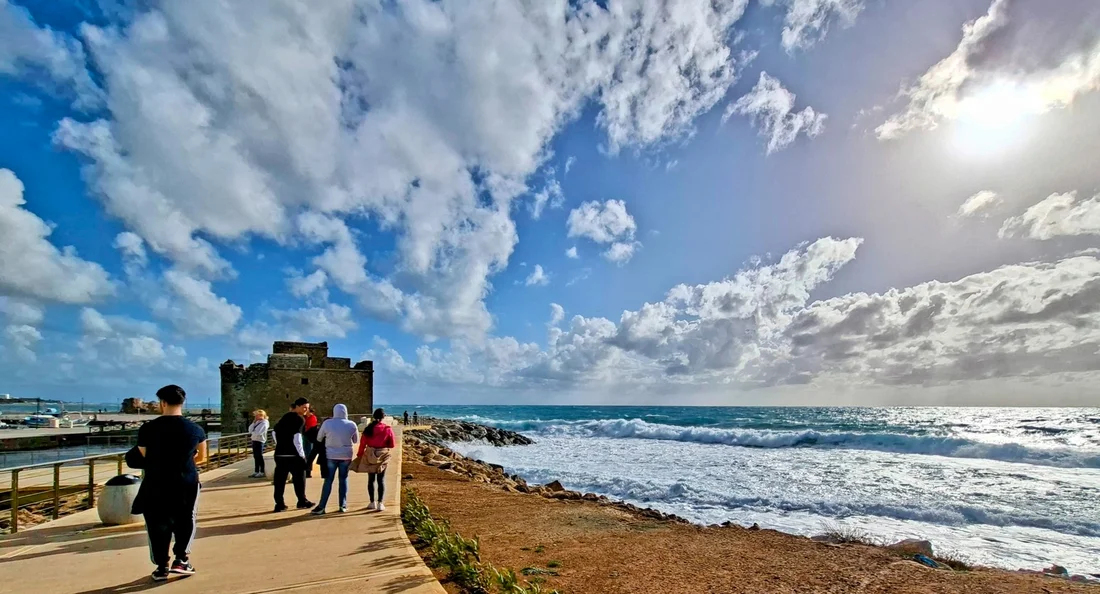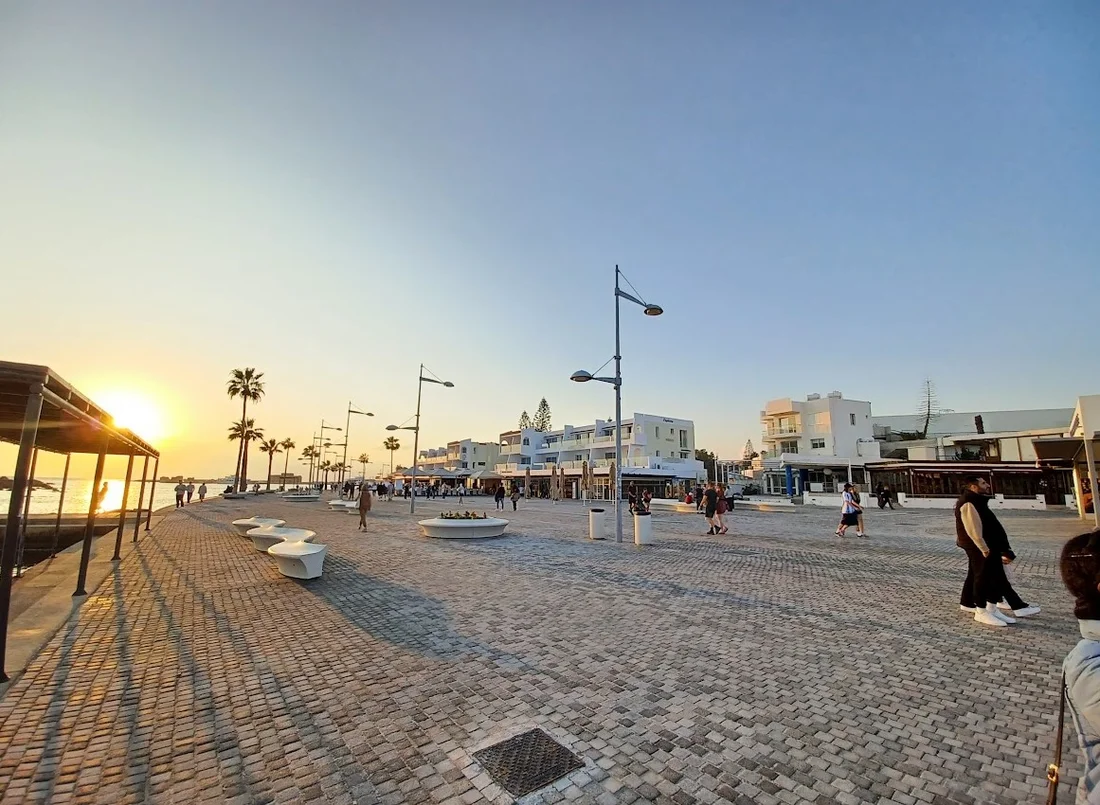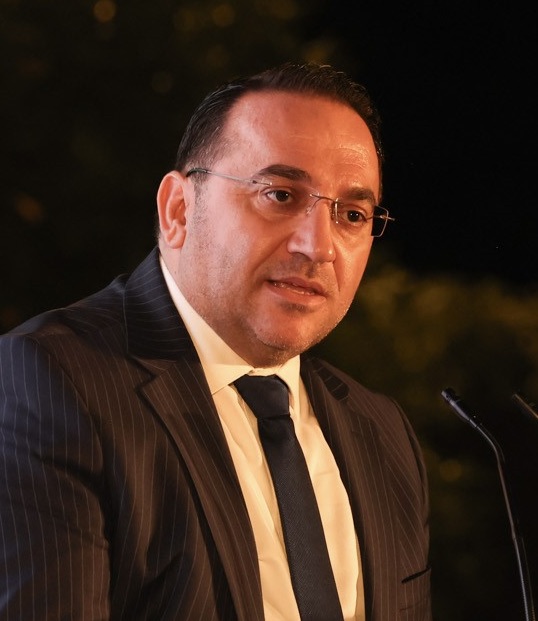Cyprus seems poised for continued growth in its tourism sector, building upon its established reputation as a sought-after destination. The island’s efforts to diversify and upgrade its tourism product have resulted in record-breaking tourism figures and attracted millions in infrastructure and hotel investment over the last few years.
Cyprus’ robust and resilient tourism sector has been gaining momentum the last two years with an uptick in tourist arrivals and receipts, signifying a positive trend of recovery from the pandemic's impact. Tourism revenue skyrocketed to almost €2.5 billion in 2022, marking a significant increase of 61.2% to the previous year, while tourism arrivals marked a groundbreaking 85.8% increase compared to 2021.
Over the last few years, the country has focused on diversifying its traditional beach holiday image to show the world it has a lot more to offer than just the sun and sea. By extending its season with the aim to welcome tourists all year round, Cyprus is promoting its mild and green winters with snow-capped peaks and its other lesser-known attractions such as forests and mountain regions, its wine country and agritourism, as well as its many historical and religious sites. Following global trends, a key part of the strategy is to develop and refine niche segments like health and wellness tourism, sports, nautical, oenogastronomy and cultural tourism, which all represent more diversified thematic areas that also foster investment opportunities in the tourism and hospitality sector. Emphasis on sustainable practices within the sector have been another significant focus, in line with global trends toward responsible travelling.
As well as growing numbers of visitors, Cyprus has attracted millions in FDI into tourism-related projects. World-renowned hotel chains like Radisson and Sofitel have established themselves on the island, while luxurious yacht marinas are springing up in every coastal region. Income from tourism accounts for more than 20% directly and indirectly of the country’s GDP, but according to latest estimates the sector has the long-term potential to contribute around 25% to the country’s economy – making tourism a key pillar of the economy with vast potential for further sustainable development. These milestones reflect the direction in which the Cyprus tourism sector has progressed, building upon its resilience and aiming for a promising trajectory of recovery and expansion.
Year-Round Destination
Although Cyprus is rebranding its image, there is no doubt a key element of Cyprus’ appeal remains its ideal weather of 340 days of sunshine and its pristine beaches – which are consistently ranked as some of the best in Europe for their high environmental and quality standards. Cyprus’ numerous Blue Flag beaches constitute proof: 77 beaches, of which more than half, and two marinas, were awarded a Blue Flag for 2022, and Cyprus ranked among the first in Europe for the quality of its bathing waters.
The Mediterranean lifestyle and expanding tourism offering of Cyprus have strengthened its status in the global tourism market as a destination of choice for travellers of all budgets – with accommodation ranging from rustic retreats and vast Airbnb options to bespoke hotels and luxury resorts. With further development of its niche segments, Cyprus is set to also attract a more diverse demographic of tourists interested in experiencing authentic island life and exploring the country’s gastronomy and history. Cyprus boasts world-renowned archaeological sites, such as the ruins of the ancient city-kingdom of Kourion and the famous Paphos mosaics. In 2018, the Cyprus antiquities department announced that it would be collaborating with the Getty Conservation Institute in Los Angeles to look at better conservation management of the World Heritage sites of Nea Pafos and the Tombs of the Kings, and to find ways of improving the visitor experience at these sites – a move that has been welcomed by both tourism officials and tourists.
Cyprus has also long been a popular winter training venue for international sports groups and athletes, as well as a destination for various sports events, ranging from rallies to cycling and sailing. The island attracts thousands of athletes and hundreds of teams every year – mainly in the winter season – proving that this niche area of tourism still has considerable growth potential if developed properly. The country’s Tourism Ministry has identified sports as an integral part of Cyprus’ tourism product and is currently drafting new incentive schemes to attract more events, teams and athletes to the island. An estimated 50,000 divers visit the island each year, many attracted by the opportunity to discover one of the top five dive sites in the world, the Swedish cargo vessel Zenobia, which sank off the coast of Larnaca in 1980. The island is creating more artificial diving reefs off the coasts of major tourist areas across the island to attract more divers. In addition, golf tourism is growing steadily thanks to the island’s year-round good weather and four 18-hole international standard courses and exceptional facilities.
Weddings and Wellbeing
Renowned as the mythical birthplace of Aphrodite, the goddess of love, Cyprus is a popular destination for wedding tourism, which contributes up to €100 million a year to the economy. The number of destination weddings to Cyprus is around 8,000 per year, of which the majority are from the UK market, followed by neighbouring Israel and Lebanon. The UAE/MEA countries constitute growing markets and efforts are underway to also promote Cyprus as the ideal location for destination weddings and events not just to the above-mentioned existing and growing markets, but also to new markets such as India and the Far East. The growing appeal of tying the knot in Cyprus is largely due to the availability of civil marriages, making it an attractive wedding venue for mixed-faith and secular couples. Cyprus is also looking at opening new inroads into the billion-dollar global market of honeymoon tourism, renewal of vows, celebrations, romantic and special events.
Capitalising on its ideal climate and clean waters, health and wellbeing holidays to Cyprus are also on the rise. The recent creation of several exclusive spa retreats to pamper the visitor, as well as a number of large-scale projects open for investment in the fields of rehabilitation and other wellness services, have all driven interest in this niche area. The wellness segment has been identified as one of the key growth areas and FDI targets by the government. These plans are perfectly aligned with global trends, as the wellness market has seen tremendous growth over the decade. Medical tourism is also experiencing some growth due to Cyprus’ world-class reputation for high-quality private healthcare. Cosmetic surgery, diagnostic tests and fertility treatment top the list as the most popular procedures for medical tourists from the UK, Germany, the Netherlands, Middle East and Russia.
Expanding Connectivity
With continuous efforts to open new markets, connectivity is a key aspect of ensuring growth in this sector. Passenger traffic at Cyprus airports recorded more than 11.6 million passengers in 2023, with an average of 32,000 passengers per day – around 41,000 in the summer and 18,000 in the winter season. In 2023, passenger traffic had an increase of 3% compared to 2019, marking the best performance ever recorded at Cyprus’ two international airports. Overall, 52 airlines operated from the two airports, flying to 39 countries and 159 routes.
A total of 18 new destinations were added during 2023, strengthening Cyprus' connectivity with destinations such as Basel, Toulouse, Bordeaux, and Naples. A key contribution was made by the incentive scheme for airlines, which has been implemented for the past 10 years, in which Hermes Airports has invested over €120 million, while also focusing on targeted digital marketing campaigns for further promotion of Cyprus. Another significant achievement for 2023, and an opportunity for 2024, is considered the increase in the airline winter schedule, contributing to cementing Cyprus as a year-round destination while offering a variety of choices for passengers. During winter 2023-2024, there was a 30% increase in available airline seats in comparison to the corresponding period of 2019, with average 70 flights per day.
Cruise Destination and Homeporting Hub
Prior to the pandemic, Cyprus was gaining a steady momentum in reviving its status as an attractive port of call for cruise ships exploring the Eastern Mediterranean region. Evidence of this was the fact that cruise line companies have been increasing the capacity and frequency of their calls to the island and Cyprus has regained its position in their East Med itinerary planning. Moreover, British operator TUI (Marella Cruises) implemented its winter 2020 plans for homeporting from Limassol Port to 13 destinations, a factor which contributed to the boost of tourism numbers. Although many of the cruises follow the familiar Mediterranean formula, more exotic routes were also launched such as a sail from Barbados to Limassol. Six cruise ships used Limassol as a homeport or partial homeport for the 2023 season and are expected to continue in 2024.
To strengthen Cyprus’ maritime tourism, a new passenger terminal was inaugurated in 2018 by port operator DP World Limassol, with plans to increase passenger traffic of the port by 35%. Naturally, the coronavirus pandemic grounded cruise liner traffic to a halt, but things have bounced back on track. In fact, DP World saw record cruise ship calls in October 2023, with 31 cruises and around 48,000 passengers to the island. This constituted the company’s best-ever monthly performance since it took over the operation of the cruise terminal. Passengers arrived from all over the world including the US, South America, Italy, Spain, Indonesia, Australia, Israel and the UK.
Focus on the Future
Cyprus is actively targeting new markets and reassessing existing ones with a sharp focus on creating a richer holiday experience emphasising culture, nature and indigenous heritage. The country has honed a high-quality hospitality industry which has been reinforced by the fact that for decades tourism has consistently been one of the most formidable economic sectors.
Today, Cyprus has the capacity to provide accommodation for incoming tourist flows. However, the focus now is on reducing the seasonal nature of tourism and spreading out the demand throughout the year to alleviate strain on the infrastructure and physical resources. The strategic plan for continually improving the tourism industry is a multifaceted effort that requires collaboration between the public and private sectors. This endeavour primarily focuses on enhancing infrastructure, providing excellent service, and promoting sustainability.
To overcome these challenges, Cyprus announced two incentive schemes to offer the opportunity to existing hotels for renovation and modernisation. This will enable them to stay in line with contemporary trends and maintain their competitiveness. In addition, the state invests in hospitality training programmes that will enhance the service skills and language proficiency of the staff. This will ensure that guests receive a high level of service and communication. A central focus is also placed on creating distinctive and tailored guest experiences through the integration of local cultural activities and culinary offerings for enriching the overall visitor experience and for promoting the local culture and cuisine. To boost sustainability, hotels are also encouraged to incorporate eco-friendly practices, including the implementation of energy-efficient systems, waste reduction and the sourcing of products locally.
The Deputy Ministry of Tourism is working through the implementation of Agenda 2030, aligned with the priorities set by the World Tourism Organization (WTO), which placed targeted investment as a key priority for the recovery and future development of tourism. It urges the international community to move towards a new investment strategy in tourism, with the aim of creating opportunities on three axes: investment in human resources, acceleration of the green transition and prosperity resulting from the exploitation of innovation, technology and entrepreneurship – ‘Investing in People, Planet and Prosperity’. To achieve this, the Deputy Ministry of Tourism is incorporating related criteria in its financial support schemes, including the ones financed by the EU’s Recovery and Resilience Fund. An example is setting eligible costs that include high energy efficiency machinery, special facilities, waste management systems, insulation and others.
Amidst stiff competition from other destinations, Cyprus must leverage its inherent advantages to cement its position as a prime tourism investment hub. Key to this strategy is the proactive promotion of the island's investment opportunities on a global scale. These efforts are bearing fruit, as FDI has been pouring in over the last five years with foreign investors closing multimillion-euro deals – cementing the fact that tourism-related real estate and infrastructure continues to be one of the most attractive investment opportunities in Cyprus. Due to the interest, the country’s investment promotion authority Invest Cyprus has set up a dedicated and specialised unit, TourInvest, to promote investment opportunities in the tourism and hospitality sector. In cooperation with the Deputy Ministry of Tourism and other stakeholders, the unit focuses on attracting multi-million investment into large-scale infrastructure projects that exist in diversified thematic areas.
In 2024, Cyprus seems poised for continued growth in its tourism sector. The current trends indicate an upward trajectory, with bookings exceeding 95% and early bookings for the following year already underway. This anticipation is fuelled by rising interest from various tourist markets spanning Europe, the Middle East, and beyond. Challenges remain and have always existed. However, the sector has built resilience due to the fact that stakeholders have had to face multiple crises, proving that Cyprus’ vision to reposition itself in the global holiday market with a more diversified and ultimately more sustainable product is set to materialise.
For more information, contact Cyprus' investment promotion agency, Invest Cyprus.
All rights reserved. The material on this site may not be reproduced, distributed, transmitted, cached, or otherwise used, except with the prior written permission of The Profiler Group.
March 2024













